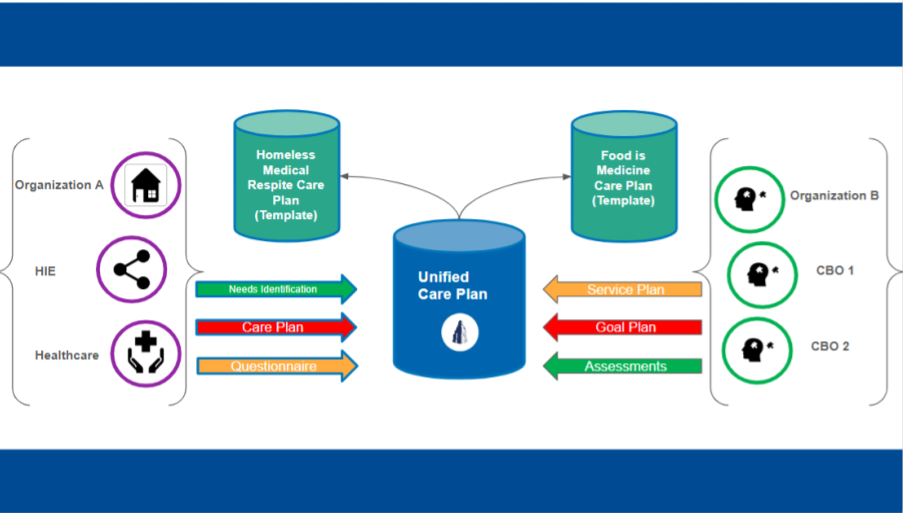Care Plan Templates: Operationalize Best Practices

Key Features of Our Care Plan Technology

Unifying data into a single care plan
Our Care Plan technology empowers multidisciplinary care teams to deliver exceptional care that addresses a wide range of clinical and social needs, from placing a person experiencing homelessness in housing to accelerating preventive care delivery in clinics. The unified care plan can:
Care Plan Templates - the difference
Care Plan Templates are built around a cohort or target population that include best practices and align with the goals expressed in their Unified care plan. OCL offers templates that are targeted interventions based on pre-defined patient cohorts. Examples include:


Secure & Organized Information Exchange
Data security and privacy are of the highest concern. OCL ensures data is protected and user-relevant by:
A Data-Driven Approach
Open City Labs works with its clients to align best practices interventions across healthcare and social service delivery systems. Each Care Plan template defines the unique information Care Team members need to drive decision making and reorganizes the patient’s record to serve up most relevant information, while providing checklists:

Benefits of Open City Labs Care Plans - The OCL Difference
- Time - Save time by auto-generating plans from existing patient data.
- Costs - 25% patients that have multiple chronic conditions account for 65% of healthcare costs.
- For Healthcare organizations care plan templates can enhance revenue through alignment with quality measures and payer requirements.
- For social care organizations care plans can expand opportunities to bill for health related data in their communities.
- Facilitate care team collaboration for holistic, patient-centered care.
- Close gaps in care by aligning SDOH, clinical interventions, and patient goals.
- Care Plan Templates incorporate research backed best practices into the care plan.
- Provide care teams with actionable insights and recommendations.
- Automate workflows for seamless operations.
© 2024 OPEN CITY LABS INC




